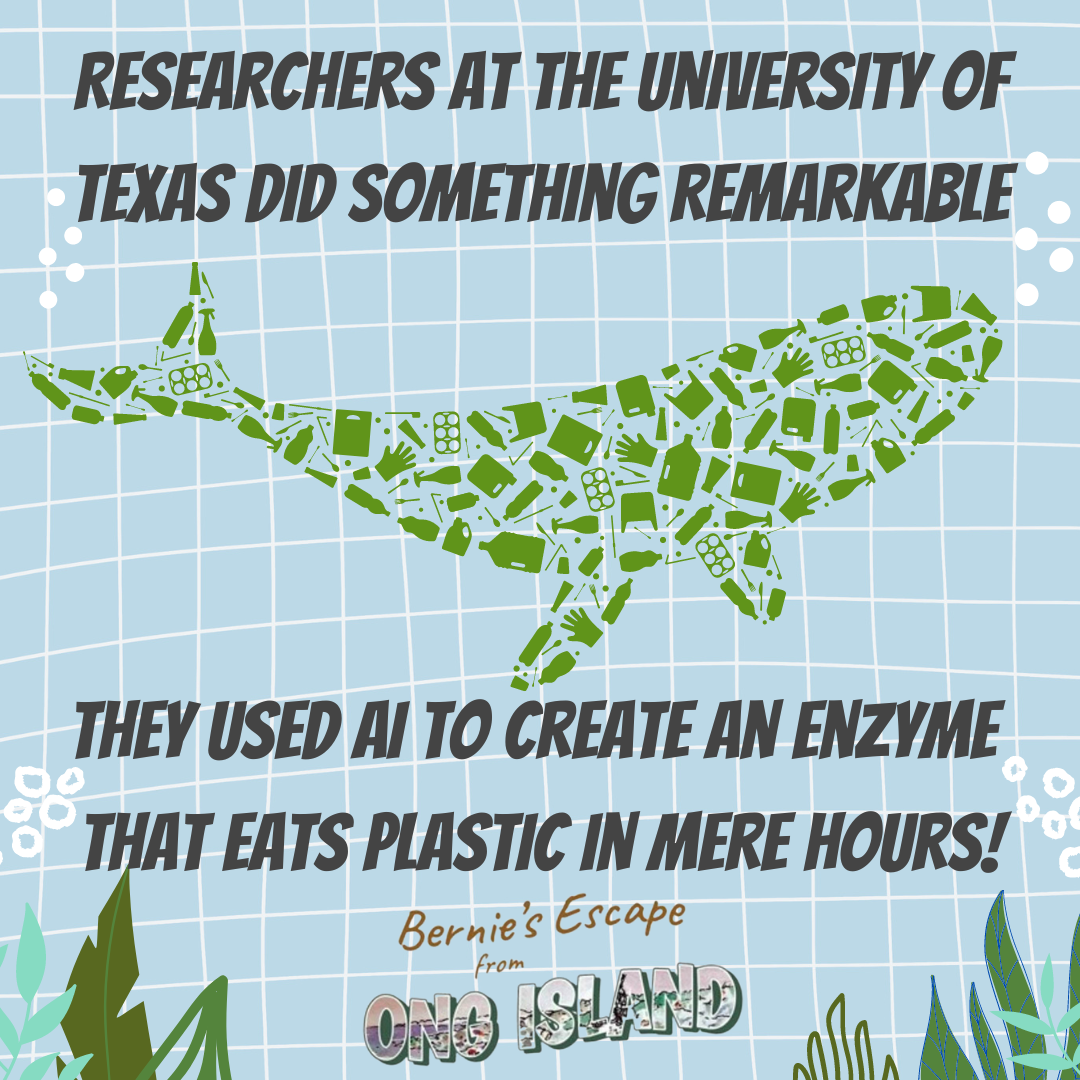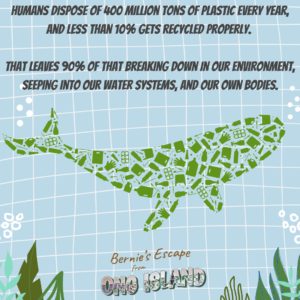
16 Aug A Plastic-Eating Enzyme?!
We have something to celebrate! Recently, researchers at The University of Texas at Austin used artificial intelligence to create an enzyme that eats plastic in mere hours! How amazing is that, friends?
There have been efforts like this in the past, but they have all been thwarted. This effort, led by Dr. Hal Alper, professor at the McKetta Department of Chemical Engineering at UT Austin, is different and seems to have what it takes to go the distance in the fight against plastic pollution.
The difference? The enzyme doesn’t just eat the plastic, but it produces products that can be utilized in a number of ways—this creates the truly circular recycling process that we long for. Additionally, the process works on both clear plastics, and mixed-color plastics. Almost nothing can do that!
If you’re here with us, then you know plastics are a problem for our environment. If you’re a newcomer, then here is why it matters: humans dispose of *400 million tons* of plastic every year, and less than 10% gets recycled properly. That leaves 90% of the plastics to just break down in our environment, seep into our water systems, and even find its way into our own bodies. (Heard of #microplastics yet?)
This is why we are celebrating today! We are closer to achieving our dream of having a plastic free ocean where wildlife can live without swimming in our trash. Thank you and your team, Dr. Alper! Keep doing great things!



